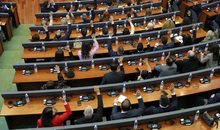
 Flash News
Flash News
Giro D'Italia starts today, here are the road axes that will be blocked in Tirana from 13:00-18:00
Who is the new Pope?
Pope Leo XIV greets the faithful for the first time in St. Peter's Square
"Freedom works", DP welcomes the US position
Reuters: Rama seeks fourth term in elections dominated by corruption and criminal gangs

Boshko Jakshic / Politika
The optimism that reigned after the agreements of February in Brussels and March in Ohrid was blown up with war ammunition, tear gas, and the roar of cannons. Kosovo's situation is worse than before; both sides in the conflict accepted the European plan to normalize relations. The international mediators showed that they still haven't learned the Balkan lesson. By repeating an unfounded degree of trust and tolerance towards the two main actors, Aleksandër Vučić and Albin Kurti, they created space for them to sabotage the agreements in different ways.
"I have to say that none of the parties is implementing the agreement, and I also have to say that we have to make progress in all elements, including in particular the Community of Serbian Municipalities," the special envoy had admitted before the riots broke out of the USA for the Western Balkans, Gabriel Escobar. "The leaders of Kosovo and Serbia are not able to agree on how to reduce the tensions in the North of Kosovo," concluded the head of European diplomacy, Joseph Borell, a month ago.
The President of Serbia opened the series of mistakes since, in November of last year, he ordered the Serbian List to withdraw from all the institutions of the Kosovar government, from the parliament to the courts and the police. Then, Brussels' invitation to bring them back so that elections could be held in the four Serbian municipalities in the North last month was answered with a boycott of the polls.
The exasperated West warned Kurt in vain not to hold the elections but still accepted their legitimacy, although only three percent of the electorate participated. They condemned Vucic. Albanians became mayors of Zveçan, Leposavič, Zubin Potok, and Mitrovija municipalities.
Vučić, seriously shaken due to the anti-violence protests that brought tens of thousands of people to the streets and squares, refused to go to Reykjavík and made a mistake: Belgrade tried to prevent the announcement of the procedure for the admission of Kosovo in the oldest European organization despite the approval previously given that it would not do so.
With this, he lost the diplomatic advantage that Kurti had given Vucic with his stubborn refusal to initiate the formation of the Association of Serbian Municipalities. The prime minister of Kosovo again prioritized Serbia by sending - without first consulting with the allies - the special Rosu units of Kosovo to ensure that the newly elected mayors of the municipalities entered the premises of the respective municipalities.
Not seen in over a decade, the unrest confirmed old fears that the conflict has great and dangerous potential. More than 50 people were injured, most of them members of Kfor, under Kosovar policemen's protection.
The Serbs equalized again. The initial judgments about the aggressive decisions that Kurti took from all sides - from Washington through the European Union to NATO - quickly turned into criticism of the Serbian attacks against the soldiers of the KFOR contingent in Kosovo, who was accused of did not prevent the "brutal actions" of the Kosovar police.
At the moment when the situation threatened an unstoppable escalation, only two people benefited: Vucic and Kurti. While they accuse each other of who is responsible for the violence, they win the chance to act bravely and present themselves as staunch defenders of their people.
The President of Serbia ordered the army's transition to the highest level of combat security and sent its units to the administrative line; even he spent a night in the positions. As a defender of the Serbs of Kosovo, all fire said that Serbia would not stand idly by and watch how the Albanians plan to expel the Serbs from Kosovo. "I will not allow the deportation, program, or killing of the Serbian people," said the president.
The crisis came at the right moment: to divert attention from a series of protests by opposition citizens against violence, protests that are not stopping, and to make the "biggest gathering in the history of Serbia" (i initiated by the government - translation note) which ended in fiasco.
Kurti secured the increase in personal popularity with his determination to show that he could govern all of Kosovo, not only those parts where the Albanians were the majority but his strength and steadfastness towards Belgrade helped him to consolidate his power, which faced severe challenges from the opposition.
While both interlocutors may be driven by the desire to strengthen their negotiating positions for a new round in Brussels, they revealed once again that they consider any compromise a weakness. For this, the highest price is paid by the Kosovo Serbs, who for years have been pawns in the game that their leaders are playing against Pristina according to directives from Belgrade, but also the Albanians there who want everyday life to face more easily with the economic shortages of a society where high corruption thrives.
The possibility of armed conflicts is not excluded. Still, there is no doubt that it decreased anyway after NATO sent to Kosovo a reinforcement of 700 new soldiers from the operational reserve forces. Added to this is Lista Srpska's call to the Serbs not to attack the KFOR, which Vucic warned about, asserting that Kurti is the one who wants conflict with the Serbs and with NATO.
With this, the course of events is back in the hands of politicians.
Since after the outbreak of the war in Ukraine, the Western Balkans came to the top of the list of security priorities; the West wants the Kosovo problem removed from the map of nerve points. The European plan, which had solid American support, promised unprecedented dynamism and shortened deadlines while making it clear to Vučić and Kurti which were the rewards of recognition and the punishments were.
Since the two interlocutors have not shown constructiveness in recent weeks, the Americans were the first to indicate that they want to replace the lost time. Although in the West, they must know that conflicts threaten, they hardened their attitude towards Kurti. Secretary of State Anthony Blinken sternly warned the government in Pristina that the forced entry into the municipal buildings in the North would have consequences for bilateral relations. The US excluded Kosovo from planned military maneuvers.
Vucic continues to capitalize that Kurti is not showing flexibility, although he knows that any subsequent mistakes in the steps taken will be sanctioned.
What to do now that Western conflict management has failed?
The Serbs should return to the institutions of Pristina as soon as possible, which would speed up the process of holding new elections. Only then will both parties return to their original positions to somehow activate the discredited dialogue. In the West, they probably learned the proper lesson that Vučić and Kurti want to use every opportunity they get to insist on theirs and repeat that the Brussels and Ohrid agreements do not oblige them to anything.
Latest news



Foreign exchange/ How much foreign currencies are bought and sold today
2025-05-09 08:19:18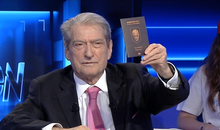
The gift that Berisha gave to Rama 'live'
2025-05-09 08:13:51
3 signs that show you are spiritually protected
2025-05-09 08:05:39

Bars can't hold back anymore, start increasing coffee prices, 4.7% more in April
2025-05-09 07:46:49

Horoscope, what do the stars have in store for you today?
2025-05-09 07:22:06
Unstable weather, afternoon brings rain
2025-05-09 07:01:29
Morning Post/ In 2 lines: What mattered yesterday in Albania
2025-05-09 06:45:46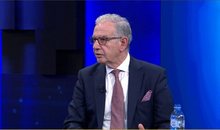
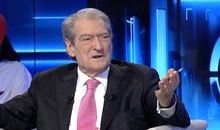
How did LaCivita change the DP campaign? Berisha: He studied the opponent
2025-05-08 22:49:51

David defeats Goliath
2025-05-08 22:15:50

Journalist: There are SPAK infiltrators in party headquarters
2025-05-08 21:55:15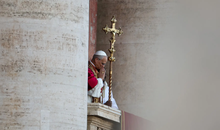
Who is the new Pope?
2025-05-08 21:48:13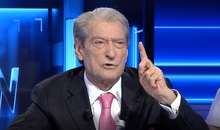
Berisha finally reveals when he will retire from politics
2025-05-08 21:33:46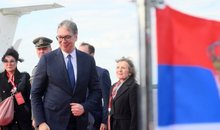

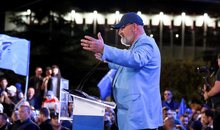
LaCivita in Lezha: Albanians will fire Edi Rama from his job
2025-05-08 21:11:20
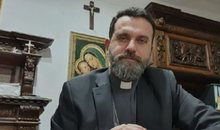
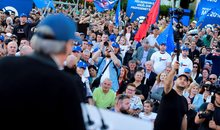
Berisha: LaCivita chose us because he believes in Reagan's program
2025-05-08 20:48:40
He rejected America to serve Pogradec, Genti Çela tells about life in "Elevate"
2025-05-08 20:26:28



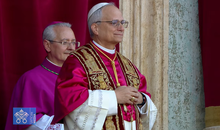
Pope Leo XIV greets the faithful for the first time in St. Peter's Square
2025-05-08 19:29:33

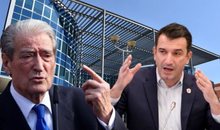


Photo session with LaCivitta in Tirana: For Great Albania
2025-05-08 18:40:18
Source: DASH decision a personal victory for Berisha
2025-05-08 18:30:10
Take off those crazy glasses and see where you've taken him?
2025-05-08 18:02:47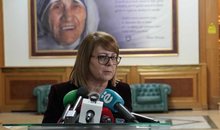
LDK files criminal charges against members of the incumbent Government
2025-05-08 18:02:00

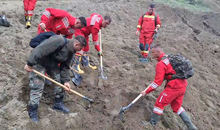
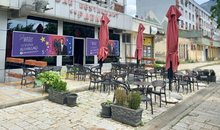



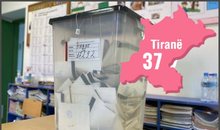
BIRN analysis: Tirana, the determining district for the future majority
2025-05-08 16:04:03
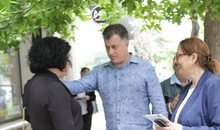


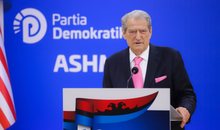
Chris LaCivita's contract with the DP, Berisha: 100% correct and clean
2025-05-08 15:11:11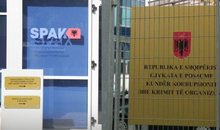
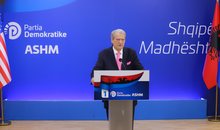
"These are the peak days", Berisha reveals when he will travel to the USA
2025-05-08 14:45:25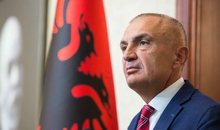
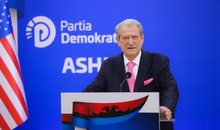
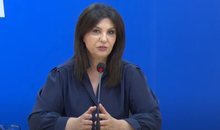
Endless boxes with filled-in ballots, DP demands separation of votes from Greece
2025-05-08 14:11:12

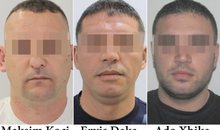
Photo/ Who are the 3 associates of Talo Çela arrested in Dubai?
2025-05-08 13:37:09
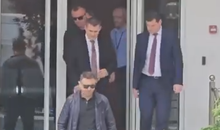
Hetimi për krimet zgjedhore, Altin Dumani zbarkon në Prokurorinë e Shkodrës
2025-05-08 13:06:21
DASH paves the way for Berisha, Alizoti: Great news on the eve of Great Albania!
2025-05-08 13:03:48
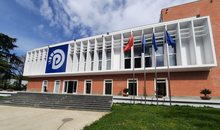
"Freedom works", DP welcomes the US position
2025-05-08 12:48:07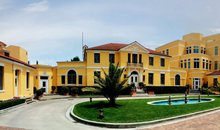
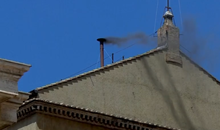
Black smoke rises from the Sistine Chapel, the Vatican still without a Pope
2025-05-08 12:26:18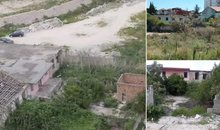
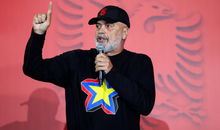
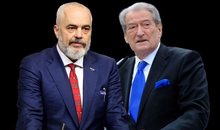


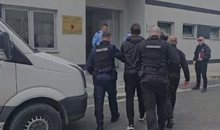
Davide Pecorrelli extradited to Albania
2025-05-08 11:29:04
'May 11, Albania will react', Xhaferri: Electoral criminals will pay
2025-05-08 11:21:46
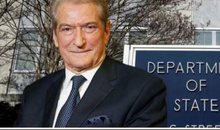
Gjin Gjoni: Non Grata fell, Rama should get ready to go to McGonigal
2025-05-08 11:01:54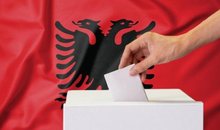
May 8th deadline for immigrants to vote in Greece extended by one day
2025-05-08 10:48:42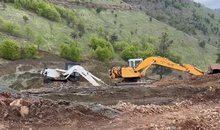
Collapse of massive chrome structure, still no trace of 29-year-old
2025-05-08 10:40:04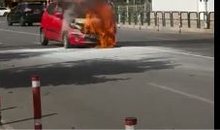
Vehicle bursts into flames in Paris Commune
2025-05-08 10:25:43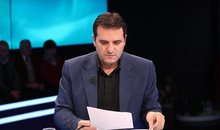
He gave land to his father and cousin, Basir Çollaku denounces the SP candidate
2025-05-08 10:16:16
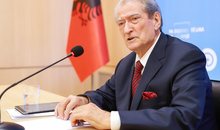
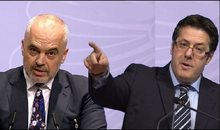

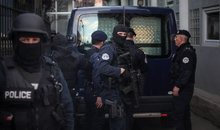
Electoral Crimes/ BKH agents and Police conduct checks in Shkodra
2025-05-08 09:19:13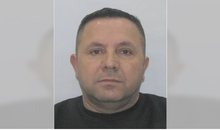
3 associates of Talo Çela arrested in Dubai
2025-05-08 09:02:28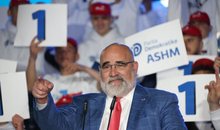
Mouse in the owl's claws, Chris LaCivita responds directly to Rama
2025-05-08 08:45:40
Foreign exchange, how much foreign currencies are sold and bought today
2025-05-08 08:30:38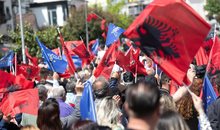
BIRN: Organized crime, the 'invisible party' of the Durrës elections
2025-05-08 08:26:35
Horoscope, what do the stars have in store for you today?
2025-05-08 08:08:15
Cloudy and rainy, what the weather is expected to be like throughout the day
2025-05-08 07:52:13
Posta e mëngjesit/ Me 2 rreshta: Çfarë pati rëndësi dje në Shqipëri
2025-05-08 07:40:16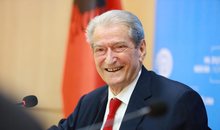
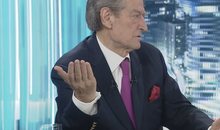

Rama attacks Bardhi: Fier cannot be represented by the world's gas
2025-05-07 22:36:22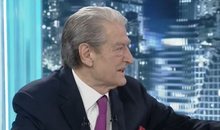

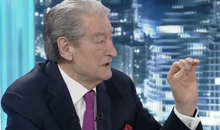
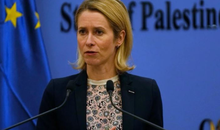
EU calls on Israel to lift humanitarian blockade in Gaza
2025-05-07 21:42:34
